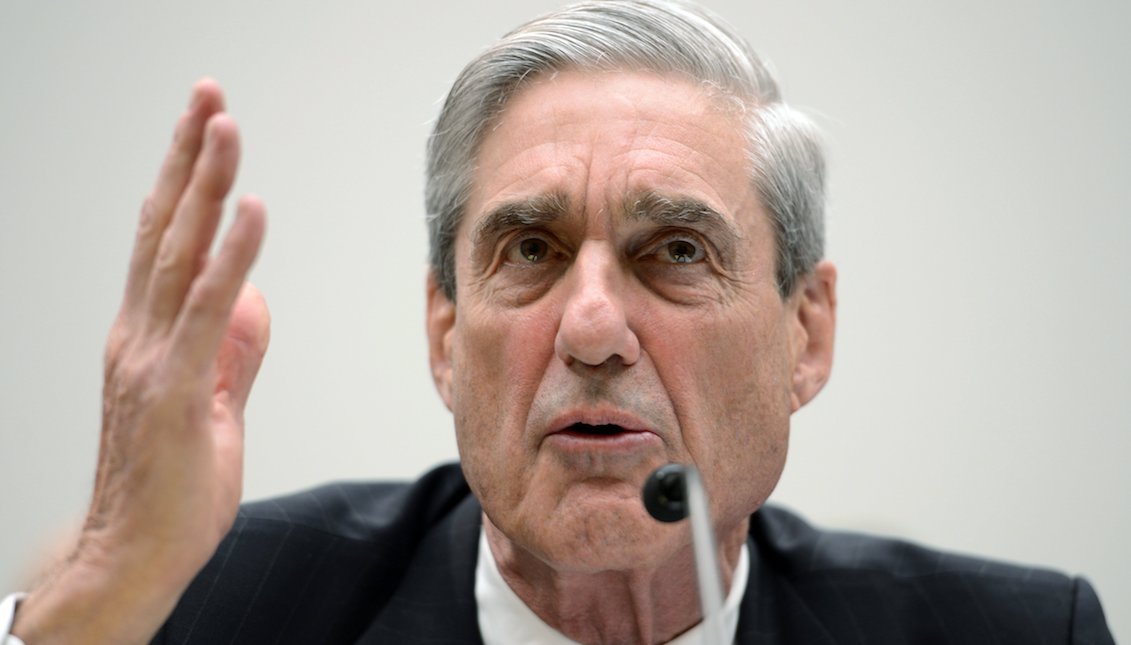
Robert Mueller to Lead President Trump's "Witch Hunt"
Facing the latest news, and mounting pressure on the Capitol, the US Department of Justice has appointed former FBI Director Robert Mueller as special attorney…
For the President, Mueller's appointment in the investigation of a possible Russian intervention in the 2016 elections, as well as collusion between his campaign advisors and Moscow, is "the biggest witch hunt in US history", as he wrote in his Twitter account.
The contradictions in the presidential rhetoric continue to emerge, since only on Wednesday, the President declared that "a thorough investigation will confirm what we already know: there was no collusion between my campaign and any foreign entity," according to Reuters.
The designation of a special prosecutor and the authorization of an independent investigation came as a consequence of the chain of events that was triggered once President Trump made the decision to dismiss FBI Director James Comey who made public the existence of memoranda on an attempt of intervention in the investigation that he carried out by the president.
Robert S. Mueller III is a Vietnam War veteran, a 72-year-old lawyer born in New York and raised in Philadelphia. Mueller led the FBI between 2001 and 2013, with a radically non-partisan stance.
According to the former deputy director of the Bureau Thomas Pickard, "His main feature is not yielding to pressure," according to a report from the BBC.
Mueller is known for being "the man who said ‘no’ the president," when in 2004 he refused to restart the US espionage program posed by President George Bush after the Sept. 11 attacks.
Also, after the attack, Mueller kept the FBI afloat, when everything indicated that the Bureau was not sufficiently capable of securing the lives of the Americans. Years later, his agency would be threatened again after the events of the Boston marathon and the leak of information made by former CIA employee Edward Snowden.
According to the BBC, in 2011, when he was 10 years in office, "in an unusual act, former President Barack Obama asked him to stay two more years, even though he had been appointed during a Republican government."
Mueller enjoys impeccable fame, "disciplined, meticulous and persistent", as the El País reports. He is also one of the few officials praised by both Democrats and Republicans.
His work at this time consists of investigating the alleged links between Trump's presidential campaign and the Russian government, as well as possible interference by Moscow in the conduct of the 2016 presidential elections.
The process is not immediate since, in order to carry out the investigation, the lawyer must obtain approval by majority vote in the House of Representatives, currently dominated by the Republican Party, which is still in favor of President Trump.
RELATED CONTENT
While the outlook does not seem favorable to a presidential impeachment, news reports that involve President Trump with a possible Russian conspiracy hit the headlines every 24 hours.
Today, sources have informed the media that both Michael Flynn and other advisers to Donald Trump's presidential campaign " were in contact with Russian officials and others with Kremlin ties in at least 18 calls and emails during the last seven months of the 2016 presidential race", a former US official told Reuters.
According to media reports, talks between Flynn and Ambassador Sergei Kislyak increased after the election results, when both began discussing how to maintain a private line of contact between President Trump and Vladimir Putin, which could bypass the bureaucracy and US national security.
Although there is no evidence yet that could demonstrate any illegal behavior by Trump's advisers, the 18 communications were carried out between April and November of 2016, simultaneously with the cyberattack that affected the presidential race.
It appeared that the communications were concerned with the improvement in diplomatic relations between the two countries, especially with regard to the strategies adopted on Syrian soil and the conflict with the Islamic State.
But for some analysts, “It’s rare to have that many phone calls to foreign officials, especially to a country we consider an adversary or a hostile power,” Richard Armitage, a Republican and former deputy secretary of state, told Reuters.
The future of President Trump is unclear to anyone, but the skepticism of some and the sources of information that never cease to emerge could define the American political landscape in the next two months.











LEAVE A COMMENT: